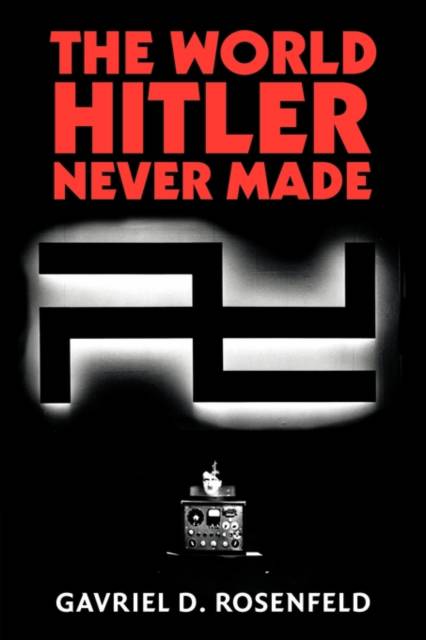
- Afhalen na 1 uur in een winkel met voorraad
- Gratis thuislevering in België vanaf € 30
- Ruim aanbod met 7 miljoen producten
- Afhalen na 1 uur in een winkel met voorraad
- Gratis thuislevering in België vanaf € 30
- Ruim aanbod met 7 miljoen producten
Zoeken
€ 50,45
+ 100 punten
Omschrijving
What if the Nazis had triumphed in World War II? What if Adolf Hitler had escaped Berlin for the jungles of Latin America in 1945? What if Hitler had become a successful artist instead of a politician? Originally published in 2005, Gavriel D. Rosenfeld's pioneering study explores why such counterfactual questions on the subject of Nazism have proliferated within Western popular culture. Examining a wide range of novels, short stories, films, television programs, plays, comic books, and scholarly essays appearing in Great Britain, the United States, and Germany post-1945, Rosenfeld shows how the portrayal of historical events that never happened reflects the evolving memory of the Third Reich's real historical legacy. He concludes that the shifting representation of Nazism in works of alternate history, as well as the popular reactions to them, highlights their subversive role in promoting the normalisation of the Nazi past in Western memory.
Specificaties
Betrokkenen
- Auteur(s):
- Uitgeverij:
Inhoud
- Aantal bladzijden:
- 538
- Taal:
- Engels
- Reeks:
Eigenschappen
- Productcode (EAN):
- 9781107402751
- Verschijningsdatum:
- 11/08/2011
- Uitvoering:
- Paperback
- Formaat:
- Trade paperback (VS)
- Afmetingen:
- 152 mm x 229 mm
- Gewicht:
- 780 g

Alleen bij Standaard Boekhandel
+ 100 punten op je klantenkaart van Standaard Boekhandel
Beoordelingen
We publiceren alleen reviews die voldoen aan de voorwaarden voor reviews. Bekijk onze voorwaarden voor reviews.











